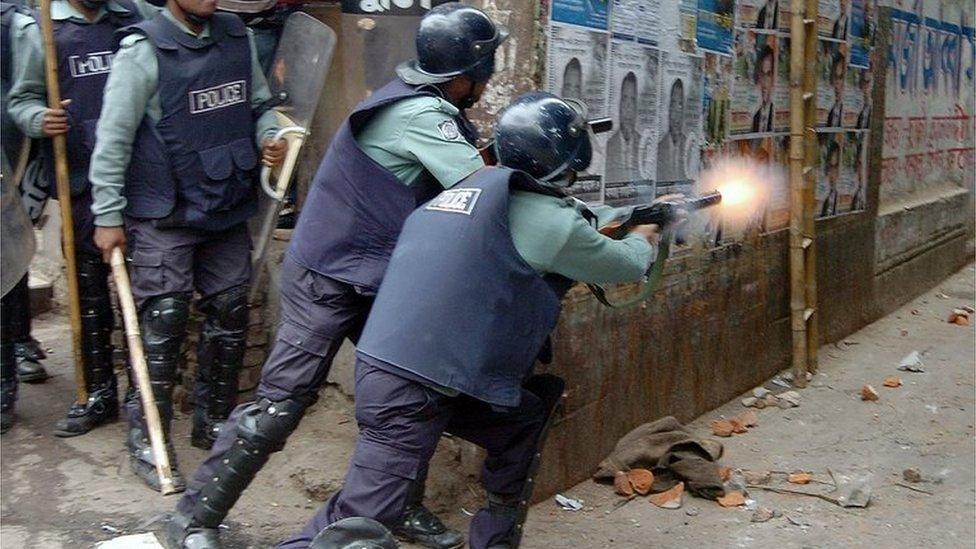Bangladesh detentions: 'Hundreds being held in secret'
- Published

Bangladesh security forces are accused of disregarding the law
The Bangladesh authorities have illegally detained hundreds of people since 2013 and held them in secret custody, Human Rights Watch says.
In a report, the US-based group says that of 90 people abducted in mysterious circumstances last year, 21 were killed.
Nine others, including two sons of opposition politicians, had disappeared.
The Bangladesh government said it would act promptly on any solid evidence.
In the report, entitled We Don't Have Him, external, Human Rights Watch also said there had been a number of suspicious deaths in custody.
"Bangladesh security forces appear to have a free hand in detaining people, deciding on their guilt or innocence, and determining their punishment, including whether they have the right to be alive," said Brad Adams, the group's Asia director.
"The disappearances are well documented and reported, yet the government persists in this abhorrent practice with no regard for the rule of law."
Nineteen activists of the main opposition Bangladesh Nationalist Party have not been seen for three years; and several dozen people have suffered this fate since the Awami League came to power eight years ago.
Human Rights Watch also says there is an "alarming" trend of people being secretly detained and then dying in suspicious circumstances, such as alleged gunfights which relatives believe were faked.
Going on eyewitness testimony, the lobby group believes two police units have carried out most of the abuses.
Human Rights Watch wants the authorities in Dhaka to investigate its findings, and those suspected of abuses to be prosecuted.
"The Bangladesh government should immediately stop this widespread practice of enforced disappearances, order prompt, impartial, and independent investigations into these allegations, provide answers to families, and prosecute security forces responsible for such egregious rights violations," its report says.
Bangladesh Information Minister Hassan Ul-Haq Inu told the BBC that if solid evidence was given, the authorities would look at it and respond very quickly.
But he insisted that proper procedures were always followed with detainees.